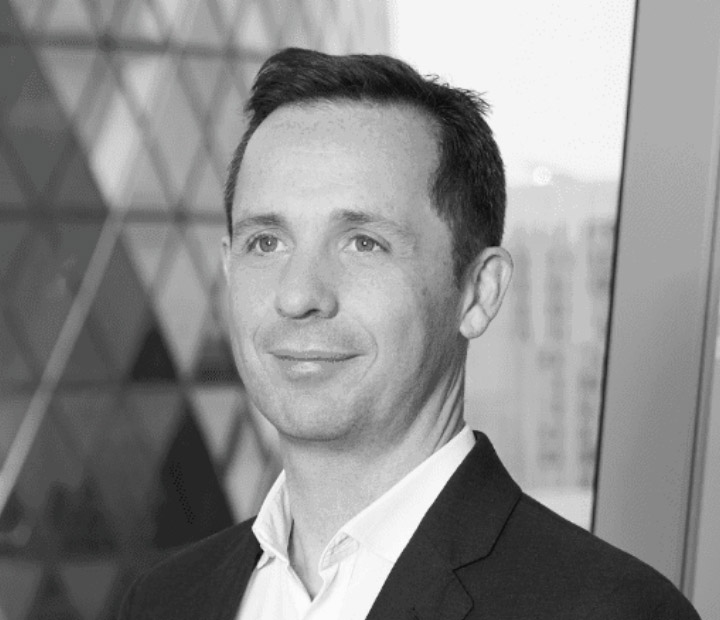



Introduction to perfORM Due Diligence Services
Last year, JTC acquired perfORM Due Diligence Services (perfORM), a leading provider of Operational Due Diligence (ODD) services to asset allocators across all asset classes and geographies.
Here, co-founders of perfORM, Quentin Thom and James Newman, discuss the evolution of the business, how it fits into the JTC Group and why ODD is a rapidly emerging and critical area in the investment space:
Can you give us an insight into the origins and evolution of perfORM?
Quentin Thom (QT): perfORM was really borne out of a passion for doing due diligence and risk mitigation well, the ‘ORM’ in our name stands for Operational Risk Mitigation. It all started back in 2008 in London when James and I met. It was an opportune time for ODD, with Madoff still very much in the minds of the investment community, with risk and due diligence becoming increasingly appreciated by boards.
James Newman (JN): It was a long journey. I was heading up a good team at Barclays Wealth at the time and Quentin was at Deutsche Bank with responsibility for ODD. We knew each other well from the due diligence community and were both actively and positively critical of the ODD space. We saw that there was a way it could be done better. It needed to be practitioner-led and UK-based, so eventually we put our brains together, managed to secure incubator funding and launched perfORM in late 2019.
QT: Today we have a growing team of experienced ODD practitioners whose aim is ultimately to use ODD to make investments safer for allocators. We also offer service provider ODD reviews to both investment managers and allocators to enable informed decision-making. We have also been successful in rolling out industry first ODD reports on digital asset exchanges, custodians and brokers.
JN: We were always really keen to focus on client service to ensure high levels of client satisfaction. Our model is based on trust and partnership, in the belief that it can lead to better investment decisions. It is a technology-enabled service at a lower price point for the established alternative investment space, and we build in flexibility to the scope of work to ensure we are meeting exactly what the client needs, based on their different needs, priorities, circumstances and risk tolerance. That sort of service had not always been readily available in the ODD landscape.
How does perfORM fit into the JTC Group as a whole?
QT: When the opportunity to become part of the JTC Group arose, we saw that it would be a really good fit, both for us and for JTC. From a JTC perspective, joining the Group formed part of an ongoing strategy to continuously develop its well-established fund solutions capability. From our point of view, there was a real synergy across the Group that was really attractive to us as we wanted to take perfORM to the next level – a fund administrator working with asset managers as well as allocators, family offices and private investors. It made a lot of sense and gave us access to the groups we felt we could build our proposition for further.
JN: Although we sit within the Institutional Client Services division at JTC, really we straddle the Private Client Services world too, given our ability to support clients across both business areas. Crucially, our independence, confidentiality, asset class agnosticism and integrity remain really important to us, and we have built a recognised brand in a relatively short space of time. Becoming part of the JTC family represents an important and exciting step for us, towards our goal of making due diligence more accessible.
To what extent do you see perfORM as a disruptor in the ODD market?
QT: All along our intention was to make ODD more accessible and offer a different and better proposition to what was already available, so in that sense we are something of a disruptor. We remain one of the only practitioner-led ODD businesses in London, and our focus on credibility, flexibility and use of technology has been fundamental to our rapid and considerable client base growth in a relatively short space of time – so there was definitely demand for the sort of solutions we offer.
JN: We want to be breaking new ground, and our aim is to set the industry standard for excellence in due diligence. We are challenging established practices through our ability to adapt and proactively develop new services and solutions, through technology, to meet changing industry needs. One of our key focuses is our client model; we operate a highly flexible, on-demand, model that liberates clients from membership subscriptions. It turns the accepted norm on its head.
Is technology a differentiator in terms of your approach to ODD?
JN: Good use of technology is key to our solution. We use technology as a tool to collect, organise and produce data. We do that based on a customised software platform that we can use as a repository to manage qualitative data and part automate the identification of operational risks.
By using smart questionnaires, the process of collecting data from clients is quick, easy and efficient, and we can feed that data into our ‘ODD engine’ to make it easy for us to interpret too. Our engine essentially automatically analyses most of the client responses to flag concerns, freeing our analysts to devote their time to analysing the more complex and technical items and adding value through their expertise.
What do you see as some of the key developments in the ODD space this year?
QT: One thing is for sure – uncertainty in markets is felt more than ever by investors, and there is a real appetite to be able to invest with conviction. ODD is key to this, so we expect to be busy over the coming months. For instance, the application of sanctions as a result of the Russian invasion of Ukraine really goes to the heart of ODD, identifying where the financial and non-financial risks are to enable allocators and investors to make sound decisions, from a legal, regulatory, economic and moral point of view.
JN: We have built up a really compelling proposition in the digital assets space, and I fully expect due diligence in this area to continue to rise in importance over the coming months. In particular, the custody of crypto will become increasingly important. It is a complex area and requires specialist expertise and experience.
ESG is another obvious area, and I anticipate ODD to become more and more important as international regulatory frameworks become embedded and there is increasing scrutiny around greenwashing and the capture of quality data.
Finally, firms will need to continue to up their game in the face of cybercrime. Hacks and digital fraud have been accelerated and more sophisticated, with remote working exposing weaknesses in security frameworks. It is increasingly becoming a feature in ODD reports.

